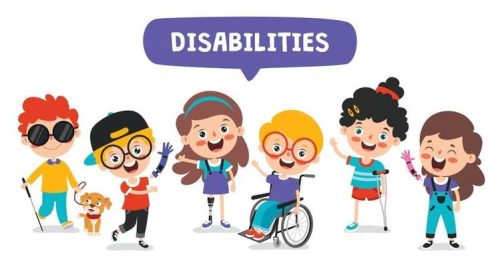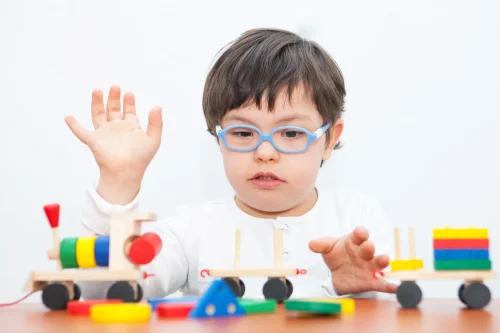Inclusive education is a progressive approach that ensures every child, regardless of their abilities or challenges, has access to quality education in a supportive and understanding environment. Understanding what is inclusive education is essential for parents, educators, and society as a whole. It is not just about placing children with disabilities in mainstream classrooms but about creating a learning environment that celebrates diversity, promotes equality, and adapts teaching strategies to meet individual learning needs.
The importance of inclusive education lies in its long-term benefits for a child’s overall development. Children learn better when they are in environments that encourage collaboration, understanding, and empathy. Inclusive classrooms help children develop essential social skills, improve communication abilities, and foster self-confidence. For children with special needs, the presence of trained professionals, such as a special educator in Noida, ensures personalized support, tailored learning plans, and consistent guidance that addresses their unique requirements.
What is Inclusive Education?
Inclusive education is an educational approach where children of all abilities, including those with disabilities, learn together in the same classroom. Unlike traditional segregated models, inclusive classrooms emphasize equal access to learning opportunities for every student.
Key elements of inclusive education include:
- Personalized Learning: Adapting lessons and teaching strategies to accommodate each child’s learning pace and style.
- Collaborative Environment: Encouraging peer-to-peer learning, cooperation, and shared problem-solving.
- Accessibility: Providing assistive tools, technologies, and resources to support children with various challenges.
By focusing on these principles, inclusive education ensures that no child feels left out or disadvantaged because of their abilities.

The Importance of Inclusive Education
The importance of inclusive education goes far beyond academics—it shapes the overall personality, emotional intelligence, and social awareness of children. Inclusive classrooms create environments where students of all abilities learn together, fostering mutual respect and collaboration. Here’s a closer look at why it truly matters:
- Encourages Respect for Diversity: Children learn to value differences and celebrate the unique abilities of their peers.
- Promotes Social and Emotional Growth: Inclusive classrooms help children develop empathy, patience, and effective communication skills.
- Boosts Confidence for Children with Disabilities: Being part of a mainstream learning environment gives children with special needs a sense of belonging and self-worth.
- Improves Academic Outcomes: Individualized support allows children to progress at their own pace without being left behind.
- Prepares Children for Life Beyond School: Exposure to diversity equips children with skills needed to thrive in inclusive workplaces and communities.
Inclusive education creates a strong foundation for children to grow into confident, compassionate, and capable adults.
Understanding Types of Disability in Inclusive Education
Inclusive education is carefully designed to support children across a wide spectrum of abilities, ensuring that each child’s unique needs are recognized and addressed. Understanding the types of disability helps educators, parents, and caregivers create learning environments that are inclusive, adaptive, and empowering.
- Physical Disabilities: These affect mobility or motor skills, such as cerebral palsy or muscular dystrophy. Children may need mobility aids or adapted classroom activities to participate fully.
- Intellectual Disabilities: These impact cognitive functions like learning, problem-solving, or understanding concepts, e.g., Down syndrome. Individualized learning strategies help children develop academically and socially.
- Sensory Disabilities: These include vision or hearing impairments. Children may use braille, audio materials, or hearing aids to access the curriculum and participate in class activities.
- Autism Spectrum Disorders (ASD): ASD affects social interaction and communication. Structured routines, visual schedules, and social skills support help these children integrate successfully.
- Learning Disabilities: Challenges in reading, writing, or math—like dyslexia or dyscalculia—require specialized teaching methods and multi-sensory learning approaches.
By recognizing these types of disability, educators can design strategies that are inclusive, effective, and adaptive to each child’s needs.

Role of a Special Educator in Noida
A special educator in Noida is essential for successfully implementing inclusive education. These trained professionals ensure that children with disabilities receive the guidance and support they need while also helping mainstream teachers adapt their teaching methods.
Responsibilities of a special educator include:
- Conducting comprehensive assessments to identify each child’s strengths and challenges.
- Developing Individualized Education Plans (IEPs) with clear learning goals.
- Introducing specialized teaching techniques and assistive technologies to improve learning outcomes.
- Providing continuous guidance to parents to reinforce learning at home.
- Promoting a positive and inclusive classroom environment where every child feels valued.
With the support of a special educator in Noida, children experience a balanced and enriching educational journey that caters to their unique needs.
How Inclusive Education Supports Holistic Growth?
Implementing the concept of inclusive education brings significant benefits across multiple areas of a child’s growth:
1. Cognitive Development
Inclusive classrooms encourage children to think critically, solve problems collaboratively, and explore new ideas. Children with disabilities benefit from learning alongside peers, while all students gain exposure to diverse perspectives.
2. Emotional and Social Development
By interacting with peers of different abilities, children develop empathy, patience, and resilience. They also build stronger interpersonal skills and a sense of responsibility toward others.
3. Academic Progress
Inclusive education emphasizes personalized learning. Teachers can adapt lessons to suit individual learning styles, helping children overcome challenges and reach their academic potential.
4. Preparation for Real-Life Challenges
Children exposed to diversity early in life are better prepared for inclusive workplaces, community settings, and collaborative problem-solving in adulthood.
5. Building Self-Confidence
Children with disabilities gain self-assurance as they participate fully in classroom activities, realizing that their abilities are valued just like their peers.

Practical Ways Parents Can Support Inclusive Education
Parents play a vital role in reinforcing the principles of inclusive education:
- Understand and Advocate: Learn what is inclusive education and actively engage with schools to ensure your child’s needs are met.
- Support at Home: Reinforce learning strategies and social skills practiced in school.
- Encourage Peer Interaction: Promote friendships and socialization outside of the classroom.
- Collaborate with Educators: Maintain open communication with teachers and special educators in Noida to track progress.
- Celebrate Diversity: Teach children to appreciate differences, helping them develop empathy and understanding from an early age.
Conclusion
The concept of inclusive education is crucial for nurturing confident, empathetic, and well-rounded children. Recognizing the importance of inclusive education, understanding the types of disability, and engaging a special educator in Noida ensures that every child benefits from a supportive and enriching learning environment.
By adopting inclusive education, parents help their children develop academically, socially, and emotionally, preparing them to succeed in a diverse and interconnected world. Every child deserves the opportunity to learn, grow, and thrive—regardless of their abilities.

